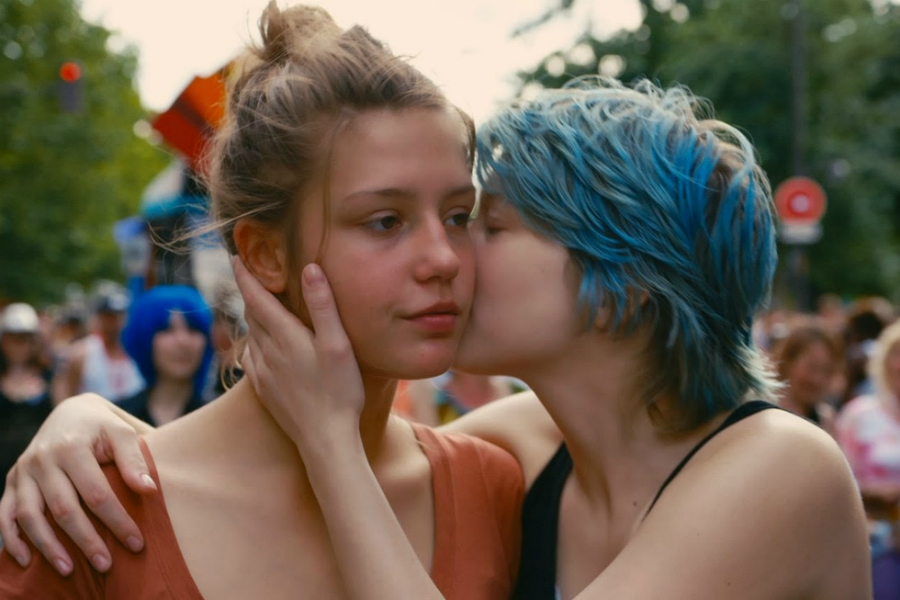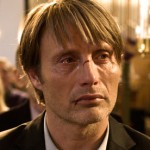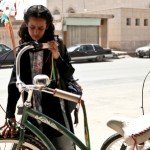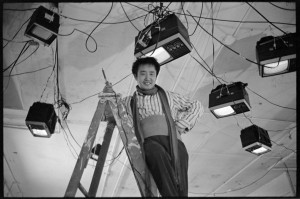Foreign Language Films of 2013 You Need To See

Fed up with her favourite films flying under the radar, Emma Palmer makes a case for this year’s best releases …
Graphic novel adaptation and coming-of-age drama, Blue Is The Warmest Colour, has been receiving rave reviews and awards this winter, including winning the highly coveted Palme d’Or (Cannes), three other awards and four nominations. A raw, beautiful and sometimes brutal love story, the performances are incredible, and it’s picked up its fair share of controversy. Watching how this film has been received made me ponder all the other brilliant films from international filmmakers that I’ve seen over the past 12 months, that have not been blessed with the admiration and advertising that they deserve. Audiences are missing out and they are not to blame.
With a film market full of surplus commercial fodder (I love a Marvel film as much as the next person, but seriously, Stan Lee, enough), how are we meant to divide the wheat from the chaff? If the reviewers do not review, or don’t shout loud enough, how are we to know which films are truly worth our hard-earned £10?
Foreign language films are more daring, more outrageous and more in touch with the happenings of the world than any Hollywood blockbuster made in the last decade. So in this spirit, here are five, must-see films that made my 2013. Don’t say I didn’t tell you…

1. The Hunt (Jagten)
Before he became the new Hannibal Lector, Mads Mikkelsen cemented his position as one of most versatile actors of his generation, winning the 2012 Best Actor award at Cannes for his portrayal of Lucas, a teacher wrongly accused of sexually assaulting a child. What follows is a modern day witch hunt, a frighteningly plausible depiction of mob mentality (just look at this week’s news), where fear overrides judgement, friends turn against friends and danger is in every snide, judgmental look of his fellow neighbours. No matter how hard Lucas protests, he is attacked at every turn, and remains guilty until proven innocent. This is a film that grips you from the very start, building the tension so that by the end you are still on the edge of your seat. If it doesn’t get a nod for Best Foreign Language Film at the Oscars, I don’t know what the Academy is thinking.

2. In the House (Dans la Maison)
Director François Ozon presents a compelling tale of the dangers of storytelling. Haunted by his own failures as a writer and bored with his tedious life as a secondary school teacher, Germain finds himself drawn to the witty, sly and talented writing of one of his students, Claude. Claude records about how he has inserted himself into the life of fellow student, Rapha, including worming his way into the family home. He signs off, “To be continued…”, Germain’s interest is piqued, and he is desperate to read more. Ozon constructs a story that hints at Rear Window, cleverly highlighting the never more pressing issues of privacy that unravel throughout the film. Germain exploits Claude’s excursions into mundane middle-class suburban life, goading him to continue his antics in order to feed his need for literary excitement. We never fully know if Claude’s stories are mere fiction — constructed to fit his fantasy of the perfect life — and that is the charm of storytelling.

3. I’m So Excited! (Los Amantes Pasajeros)
It didn’t get rave reviews, but I loved it. The ‘bi-polar’ opposite of Pedro Almodóvar’s last film, dark thriller The Skin I Live In, I’m So Excited! is an explosion of colour, campness and satirical comedy. Taking place almost entirely on a damaged airplane bound for Mexico, the confined space serves to heighten the ludicrous stories that unfurl. Upon discovery of their imminent danger, the crew do what any crew would do: drug the economy class and distract the business through a series of rambunctious attempts at entertainment, pulling out all the stops with an impressive choreographed mime of the Pointer Sisters’ I’m So Excited. The claustrophobic space is filled with equally absurd characters from all walks of life; a famous dominatrix, a psychic virgin and the obligatory honeymoon couple. It is not a film made to compete with the challenging, edgy and enticing films of Almodóvar’s back catalogue, and perhaps this is why the critics were not overly kind. It is, however, a film that knows it’s outrageous and enjoys every last minute of screen-time.

4. Wadjda
Wadjda should not be missed for a number of reasons. Breaking boundaries for Middle-Eastern filmmaking, it is the first film shot entirely in Saudi Arabia, by the kingdom’s first female director, Haifaa Al Mansour, and follows a female protagonist. The film tells the story of Wadjda, a young girl who wants nothing more than to win enough money to buy a bike in order to race her friend (regardless of the fact than an unchaperoned woman is prohibited to ride a bike in public). The solution to her money woes? A Quran recitation contest, thereby using the religion which would restrict her as a means of gaining her freedom. Director Al Mansour insisted on shooting the film entirely in Saudi Arabia so that it would be entirely authentic, despite the logistical problems it entailed. Al Mansour gives a voice to women, showing the world that, although we may not agree with the religious structures in place, the lives of those in the East are not so far removed from those in the West.

5. No
A sleek look at the advertising world in 1988 Chile. Some compared it to Mad Men, however Pablo Larrain did not merely focus on aesthetic and narrative; this is a film that packs a far more relevant political punch. No is a dramatization of the ‘No’ campaign devised by advertising executive René Saavedra (played by the glorious Gael García Bernal), which revolutionized the political offensive against dictator General Pinochet’s stay in office. Saavendra rejected the typically aggressive forms of propaganda typically used by both sides, and instead focused on providing an upbeat vision of happiness and the future. The campaign mastered the nightly 15-minute TV spots used to address the public and sway their votes, playing a vital role in the success of the No campaign. This is a film which elegantly explores democracy at play.
Emma Palmer
Read more…
Ahead of the release of Pedro Almodóvar’s new film I’m So Excited!, Nathan Richardson ponders whether the Spanish director has his head in the clouds, or rooted in reality…
No is a film which looks at advertising through the prism of politics and propaganda, says DW Mault…





